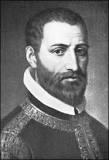Planning worship?
Check out our sister site, ZeteoSearch.org,
for 20+ additional resources related to your search.
- |
User Links
Person Results
‹ Return to hymnal


Export as CSV
Joseph Anstice
1808 - 1836 Hymnal Number: 289 Author of "O Lord, how happy should we be" in Songs for the Lord's House Anstice, Joseph , M.A., son of William Anstice of Madeley, Shropshire, born 1808, and educated at Enmore, near Bridgwater, Westminster, and Ch. Church, Oxford, where he gained two English prizes and graduated as a double-first. Subsequently, at the ago of 22, he became Professor of Classical Literature at King's College, London; died at Torquay, Feb. 29, 1836, aged 28. His works include Richard Coeur de Lion, a prize poem, 1828; The Influence of the Roman Conquest upon Literature and the Arts in Rome (Oxford prize Essay); Selections from the Choice Poetry of the Greek Dramatic Writers, translated into English Verse, 1832, &c. His hymns were printed a few months after his death, as:— Hymns by the late Joseph Anstice, M.A., formerly Student of Christ Church, Oxford, and Professor of Classical Literature, King’s College, London, Bridgwater, 1836, and thus introduced:—
"As none of the following Hymns had the advantage of being corrected and prepared for the press by their lamented Author, his family have not considered themselves at liberty to bring them before the public; but, having reason to believe that a large circle of surviving friends will be gratified by possessing a memorial of the manner in which some of his leisure hours were employed, and of the subjects which chiefly occupied his thoughts, during the last few months of his life, they have consented to their being printed for private distribution.—-Bridgwater, June, 1836."
This work contains 52 hymns on various subjects, together with a poem "To my Hymn Book." The circumstances under which they were written are thus detailed by Mrs. Anstice in a communication to the Rev. Josiah Miller, author of Singers and Songs of the Church:—
"The hymns were all dictated to his wife during the last few weeks of his life, and were composed just at the period of the day (the afternoon) when he felt the oppression of his illness—all his brighter morning hours being given to pupils up to the very day of his death."-—S. & S., p. 495.
A few of the hymns are of a joyful character, but the circumstances under which they were written account for the prevailing tone of sadness by which they are chiefly characterized. About one half of these hymns were included by Mrs. Yonge in her Child's Christian Year, 1841. Being thus brought before the public, many soon came into common use. Those in most extensive use are: "Father, by Thy love and power;" "In all things like “Thy brethren, Thou;" "Lord of the harvest, once again;" and, "O Lord, how happy should we be."
-- John Julian, Dictionary of Hymnology (1907)
Joseph Anstice
Llewelyn D. Bevan

1842 - 1918 Hymnal Number: 147 Author of "O blessed Love! which, from the throne" in Songs for the Lord's House
Llewelyn D. Bevan
Thomas Selle
1599 - 1663 Person Name: T. Selle Hymnal Number: 504 Composer of "OLDENBERG" in Songs for the Lord's House
Thomas Selle
C. D. W. Bridgman
1835 - 1899 Person Name: C. D'W. Bridgman Editor of "" in Songs for the Lord's House
C. D. W. Bridgman
John B. Gausby
Person Name: J. B. Gausby Hymnal Number: 449 Composer of "BAPTISMAL CHANT" in Songs for the Lord's House
John B. Gausby
Richard G. Greene
Person Name: R. G. G. Hymnal Number: D1 Author of "O Holy, Holy, Holy One" in Songs for the Lord's House
Richard G. Greene
J. M. Hewett
Hymnal Number: 451 Author of "Jesu, now Thy new-made soldier" in Songs for the Lord's House
J. M. Hewett
Arthur Patton
1854 - 1892 Person Name: A. Patton Hymnal Number: 255 Composer of "VIGIL" in Songs for the Lord's House
Arthur Patton
Jacob Arcadelt

1505 - 1568 Person Name: J. Arcadelt Hymnal Number: 263 Composer of "ASSURANCE" in Songs for the Lord's House Jacob Arcadelt born in the Netherlands towards the end of the 15th century, died in Paris. The story that he was a pupil of Joaquin Deprès is probably untrue. In 1540 he was admitted into the Pontifical Choir at Rome, and in 1555 (?) entered the service of Cardinal Charles of Lorraine, Duke of Guise, whom he followed to Paris. Arcadelt was on of the many Flemish composers who migrated to Italy; he helped to found the "great" Roman school, and was one of Palestrina's most distinguished forerunners. he united French delicacy of sentiment, Flemish mastery of musical form, and Italian culture in quite an exceptional way, and was at once one of the most important and prolific composers of his day. Together with Willaert and Verdelot, he was one of the founders of the madrigal. His first book of 53 madrigals (Venice, 1538) reached it sixteenth edition in 1617, and was followed by five other books. If in his church compositions Arcadelt's style is of almost heroic grandeur, and shows the most complete mastery over all the intricacies of counterpoint (albeit he seems to have despised the then popular "Netherlandish tricks"), in his Italian madrigals we discover perhaps the first dawn of the sentimental element in music. His French chansons, on the other hand, are perfect little cabinet-pieces of contrapuntal elaborateness. Notwithstanding the glorious musical epoch which followed close upon his death. Arcadelt's works were long looked upon with the greatest veneration' Frecobaldi wrote an organ piece on a them "del Signore Arcadelt," and even Liszt wrote a pianofote piece on an Ave Maria of his.
Cyclopedia of Music and Musicians by John Denison Camplin, Jr. and William Foster Apthorp (Charles Scribner’s Sons, 1888)
Jacob Arcadelt


 My Starred Hymns
My Starred Hymns


